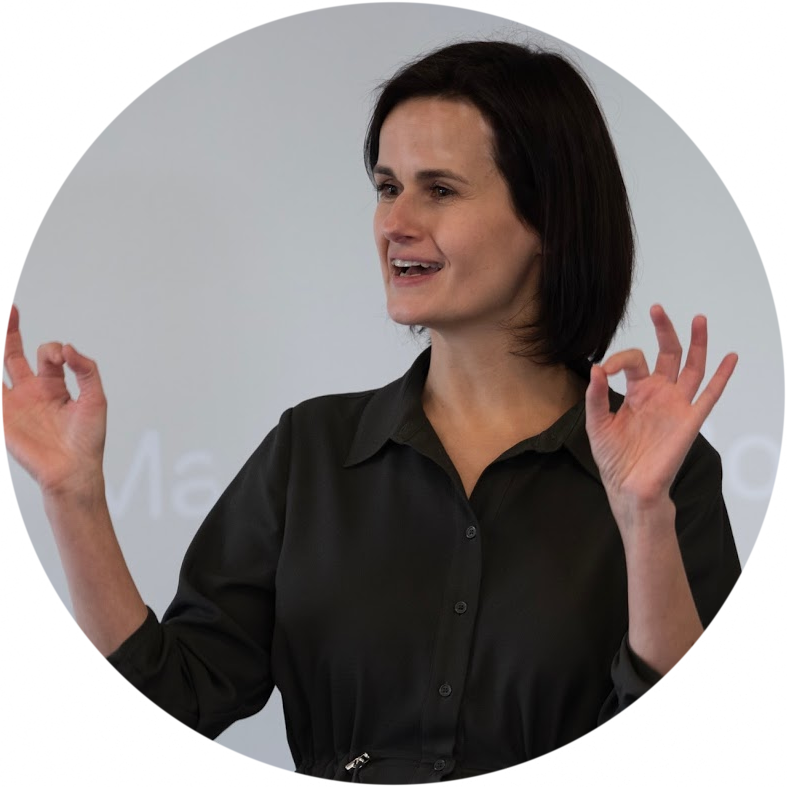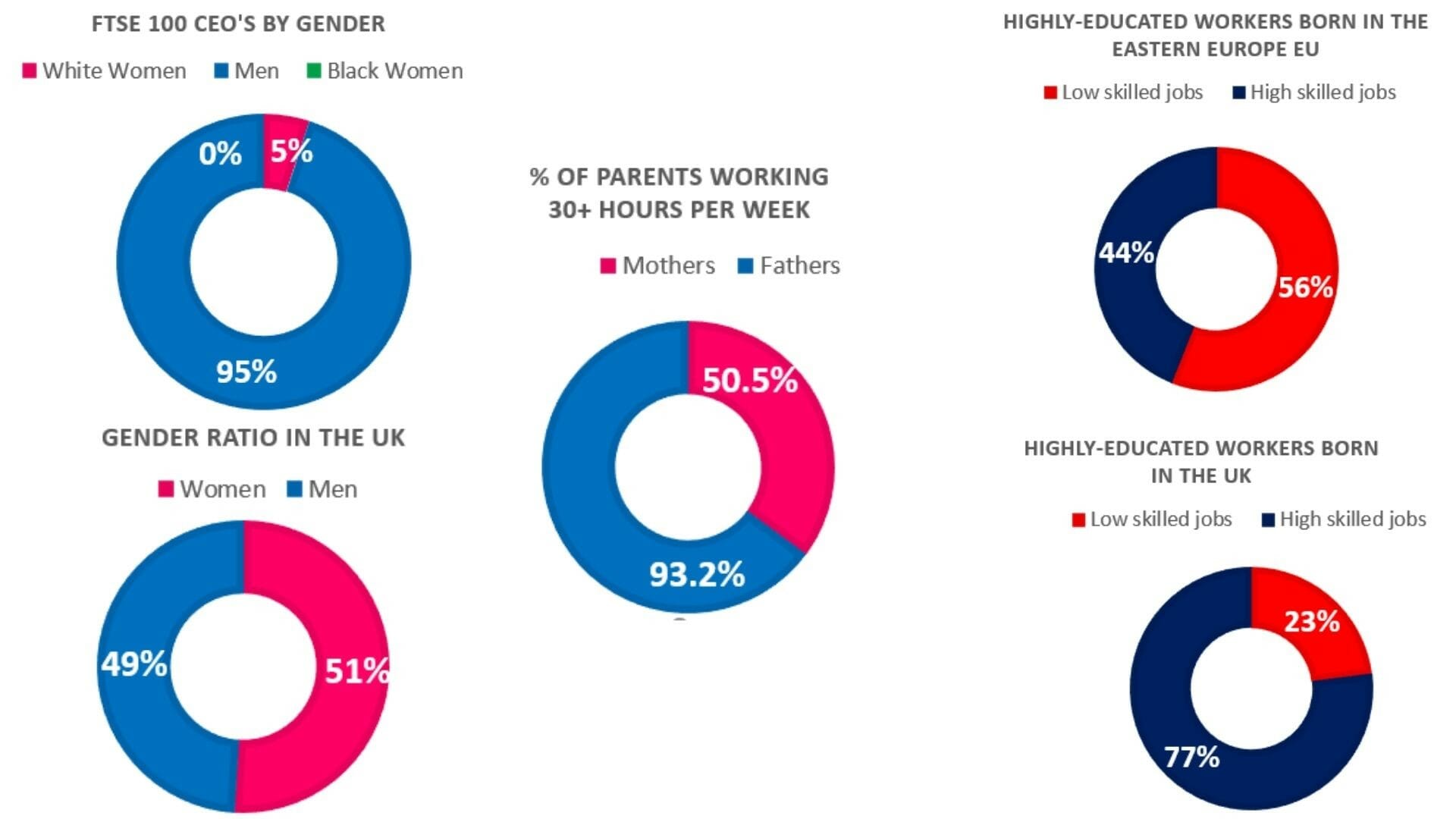is it me or is it bias?
Anna Jakielaszek, Diversity & Inclusion Consultant, SeeBeMean

Anna Jakielaszek
Diversity & Inclusion Consultant, SeeBeMean
I’m in an important meeting with everybody else being a white male British senior leader (I’m white, Polish female with ADHD). Here I am processing information – and getting “the look”- (the expressive ADHD); I am sharing an opinion- and my male manager is being asked – would you agree? He does and this is all that’s needed for my thoughts to be accepted.
Is it me, or is it bias?
Maybe I need to be more confident…?
STOP AND THINK:
The best advise I’ve heard about how to deal with bias was…. To stop and think. Interrupt your “System 1 thinking”, as per Daniel Kahneman, the automatic brain and check in with “the system 2” thinking- take control, reflect, observe.
I’ve heard that advice from Jan Hills, the author of books on neuroscience in business, including “Brain Savvy Woman”. I had a pleasure to have an interview with her about how neuroscience can help us with understanding better ways we can progress with diversity and inclusion.
Not much longer after that interview, I found myself being disappointed with a presenter of a course I attended. And then I realised- I should have been disappointed with myself! I was biased!
We are all biased. David Rock from the Neuroleadership Institute says- “If you have brain, you’re biased”, and he also adds- “The good news is that while you cannot take bias out of your brain, you can take it out of the processes that affect decision making.!”.
Does it mean we should leave the bias to others to design the right processes?
No! There’s more we can do ourselves too- understand when bias may kick in and find interventions to stop its impact. We all can play a role in it, and I call it – becoming a Scientist, Rebel and Architect for more inclusive (and innovative) workplaces.
I knew I was biased that day towards the presenter (and so I could change my perception and impact). But how do I know if others are biased against me…?
“FOREIGNERS ARE NEVER PROMOTED IN HERE”.
I once worked for a company where I was warned at the beginning “ Foreigners are not being promoted in here!”.A year later I was promoted, and I do not have enough words of gratitude to my then manager. She was a great “Scientist (she could spot “potential”), “Rebel” (gave us chances before we could fully prove ourselves) and “Architect” (we were supported internally and externally with resources, direct and timely feedback and projects exposure). I say “we”, because there were other foreigners (and British) who were promoted… Have you noticed that leader was a woman? Maybe it’s coincidence, maybe it’s another confirmation of female leadership qualities. Tomas Chamorro-Premuzic in his book “Why do so many incompetent men become leaders” states that “Here is now compelling scientific evidence for the notion that women are more likely to adopt more effective leadership strategies than do men. Most notably, in a comprehensive review of studies, Alice Eagly and colleagues showed that female managers are more likely to elicit respect and pride from their followers, communicate their vision effectively, empower and mentor subordinates, and approach problem-solving in a more flexible and creative way (all characteristics of “transformational leadership”), as well as fairly reward direct reports.” This pretty much describes that manager…
What I’ve learnt from that experience was that either the bias is potentially directed at me, or we are being biased against others, there are two things worth checking ourselves with:
- Interrupt our “System 1 thinking”- stop and think.
- If I am forming hypothesis- I need to check them.
In other words- be like a scientist- look at data, evidences, compare, be honest with yourself, seek further clarification, ask questions.
What hypothesis should I be forming for the situation when my words needed “approval” from my male manager?
IS CONFIDENCE THE ANSWER?
For me, personally, the two sentences were true:
- When I was confident, I was progressing .
- When I was confident, I was not progressing.
I think it is worth to look at the confidence question from my intersectionality point of view:
- As a Polish living in the UK, my communication style is culturally more direct than British, which made me on several occasion sound more “abrasive” (which may sound confident, but does not have positive meaning to it)
- As someone with ADHD, I can be passionate, spontaneous and talk for a long period of time (sounds like confidence?)
- As a woman, I may suffer from a backlash effect– as studies show, women are penalised for “over confidence” not conforming with the gender stereotypes
- As a mother, well, aren’t I less committed anyway…?
Giving all of the above, confidence does not sound like an answer on its own…
What instead then?
GNOMES REVOLUTION
I am from a wonderful city of Wroclaw, a place where gnomes revolution was born under the name of the “Orange alternative”. They choose to be rebels with a smile, making a point in a subtle way, inviting others in rather than alienating.
In those senior meetings, I’ve learnt that my voice was better heard if I was like that gnome with the flower… Making a point without saying it directly.
Working in tech and having ADHD meant that I did not speak the same language (not to mention my accent…!). I often wasn’t concise enough, detailed enough, fast enough. I did not know I had ADHD back then, but I knew the above was problematic.
I’ve decided that rather than making (confident) statements, I started using (powerful) questions.
- Do you think this decision could be influenced by a,b,c?
- I may not have all the details, so asking- does it mean that a,b,c….?
- What would happen if….
And so on. I suddenly started getting attention, and sometimes even the question was returned back to me- they were ready to listen to me…
Was I becoming a quite rebel…?
BUT WHAT ABOUT BEING TRUE AUTHENTICS SELVES AT WORK?
The following two statements were true for me:
- Being authentic self helped me progress.
- Being authentic self jeopardised my success.
Over all- being myself- curious, driven, adventures got me to be in the place I am in today.
However, the affinity bias (we prefer others who are like us) and the distance bias (we value more what’s closer) were working against me.
That senior leader who needed an “approval” from my male manager- he had the least interactions with me.
Interacting with the other senior leaders, I was able to make the gap smaller, we had an opportunity to learn our working styles, priorities and see the impact of our work. They were not looking for my manager’s “approval”.
I see my being authentic self as the only way forward, but I am mindful of when I can “dial it up” or “tone it down”…
I appreciate the stand of HeadHeartBrain asking the (rhetorical) question “Do we fix women or do we fix environment”?…
Read this article for a practical summary of the bias at work and what can we do about it.
MERITOCRACY?
I want to conclude with some data on gender, parenthood, immigration from Eastern Europe and ADHD. I leave it without a comment, but with a question-
Could that be that we are not capable of more?

Sources:
You can hear more from Anna at the Women in IT Virtual Summit Europe on 15th September 2020. You can view the agenda and secure your free place here.

